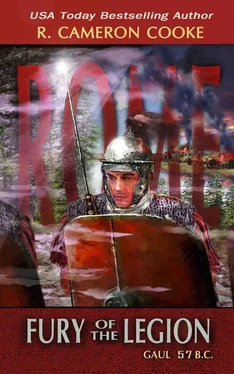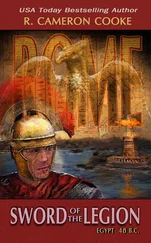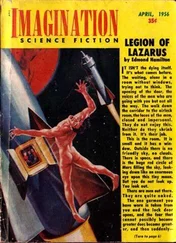R. Cooke - Rome - Fury of the Legion
Здесь есть возможность читать онлайн «R. Cooke - Rome - Fury of the Legion» весь текст электронной книги совершенно бесплатно (целиком полную версию без сокращений). В некоторых случаях можно слушать аудио, скачать через торрент в формате fb2 и присутствует краткое содержание. Год выпуска: 2015, Издательство: Orbis Publishing, Жанр: Исторические приключения, на английском языке. Описание произведения, (предисловие) а так же отзывы посетителей доступны на портале библиотеки ЛибКат.
- Название:Rome: Fury of the Legion
- Автор:
- Издательство:Orbis Publishing
- Жанр:
- Год:2015
- ISBN:нет данных
- Рейтинг книги:4 / 5. Голосов: 1
-
Избранное:Добавить в избранное
- Отзывы:
-
Ваша оценка:
- 80
- 1
- 2
- 3
- 4
- 5
Rome: Fury of the Legion: краткое содержание, описание и аннотация
Предлагаем к чтению аннотацию, описание, краткое содержание или предисловие (зависит от того, что написал сам автор книги «Rome: Fury of the Legion»). Если вы не нашли необходимую информацию о книге — напишите в комментариях, мы постараемся отыскать её.
Rome: Fury of the Legion — читать онлайн бесплатно полную книгу (весь текст) целиком
Ниже представлен текст книги, разбитый по страницам. Система сохранения места последней прочитанной страницы, позволяет с удобством читать онлайн бесплатно книгу «Rome: Fury of the Legion», без необходимости каждый раз заново искать на чём Вы остановились. Поставьте закладку, и сможете в любой момент перейти на страницу, на которой закончили чтение.
Интервал:
Закладка:
R. Cameron Cooke
Rome: Fury of the Legion
“If a man does not know to which port he is sailing, no wind is favorable.”
- SenecaI
Twelve hundred men marched in a long snaking column through the dark forests of the Belgae, a meandering river of dull helmets and glimmering spearpoints. The two Roman cohorts marched with a contingent of Gallic auxiliaries. They marched in silence, not from any order of their officers, but from the feeling engendered by the encroaching trees on either side of the narrow path. A haunting chill crept over any man who gazed on the dense woods, where yellow-eyed creatures stared back from the darkness, where unintelligible cries echoed from indiscernible sources, where druids dwelt, and men and beasts feared the night.
Far behind the column, a black stain loomed in the sky, a patch of smoke with no wind to carry it away. It hung above the trees as if to glower upon the tramping soldiers and remind them of what they had done. It marked the spot where a village had once stood and thrived for generations – a community of several dozen families with their own huts and fields, their own festivals, their own cares and wants, their own dreams.
Now, only ashes remained, where black-snouted wolves picked at white bones. The cohorts had done their work well.
The auxiliary cavalry filed alongside the marching troops, their conical helmets and upturned lances brushing against the overhanging branches. These were Gallic warriors from the Aedui tribe, wearing their distinctive mustaches, neatly combed and hanging down to their chests. Freshly severed heads dangled from their saddles, proud trophies that they would display back home with great revelry. But the Aedui, too, marched silently, as if the souls of the hundreds of slain innocents stared back at them from the impenetrable darkness beneath the twisted limbs.
The sky unleashed a downpour in the late morning, and by the time the cohorts had reached a suitable clearing for the camp, the ground had turned to mud. But the hardened legionaries were used to such impediments, and set about their engineering work as if they toiled beneath a clear sky over Naples. By late afternoon, a ditch had been dug out of the mud, and by evening, a wooden palisade sat atop the ditch. They finished just as the orb-like sun emerged from the gray clouds, painting the sky red before sinking behind the treetops. In the fading light, the weary soldiers finally took their repose, venturing in shifts outside the palisade to dig latrines and see to their kits.
Legionary Lucius Domitius felt the first cool breath of evening as he scraped the caked mud from his entrenching tools. Though he was accustomed to long marches, this day’s trek had been especially tiresome. The road – nothing more than a wagon cut – had been so narrow in many places that the legionaries had been forced to march two abreast, causing log jams all along the column. It had been a long day of starts and stops, of standing for hours on end in full kit while the files ahead cleared. Even now, the last mules of the baggage train, piled high with spoils from the village, were only just arriving, several hours behind the head of the column.
“A blood-red sunset,” the legionary next to Lucius commented. “Another bad omen.”
“You’ve seen a lot of them today, Jovinus,” Lucius quipped. “This morning, it was that mule that fell into the quicksand. This afternoon, it was that hawk that flew across our path in the wrong direction.”
Jovinus smiled. “Scoff at me as you will, Lucius.”
“I? Not at all,” Lucius said with thick sarcasm.
Lucius, Jovinus, and the rest of the 9th century cleaned their kits while lounging about a muddy pond somewhere half-way between the outer wall of the fort and the thick forest that surrounded it.
A whip cracked in the distance, catching the attention of the century. Lucius looked to see a procession of pale-skinned men and women trudging up the road, herded by a troop of Aeduan cavalry who liberally employed the lash to keep their prisoners in line. The younger and sturdier Belgae had been spared from the massacre to be sold in the slave markets of the Aedui lands – the human spoils of war that kept the Gallic allies motivated in their allegiance to Caesar. Stripped of their clothes and splattered with mud and dung from marching behind the mule train, their individual identities had all but slipped away. No matter what their previous stations in life, whether village elder or simple peasant, they were now property, destined to be sold or abused as their new masters saw fit.
The Aeduan cavalry herded the human plunder into the auxiliary camp which was somewhat removed from the Roman camp. Road-weary Aeduan spearmen waited there, a mass of mustachioed warriors with eyes that gleamed wickedly from beneath dingy conical helmets. Before the night was out, the Belgic women unfortunate enough to have round hips would wish they had been massacred with the others. One of the women, seeing these salivating devils, screamed and tried to break out of the line, but a crack of the lash left a long red mark on her pale buttocks prompting her to rejoin the procession. Soon, she and the others had disappeared amongst the mass of Aedui tents.
“There’s a bog nearby,” Jovinus said, sniffing the air. “Or I’m Juno’s bastard.”
“Aye,” Lucius replied. “Very likely.”
“They say the druids of these parts dwell in bogs, where they craft spells to talk to the dead. I tell you, Lucius, a curse is upon this land.”
“After today, I’m liable to put a few curses on it myself.”
Jovinus did not smile. His face was solemn as he stared out at the distant tree line. “That wood is a dark place – an evil place. It has the eyes of spirits. They watch us now as they watched us all day. They see our blood-stained boots march by, and they do not approve.”
Lucius said nothing. He did not wish to discuss the subject, but Jovinus was determined.
“Did you feel it, Lucius, as I did?” Jovinus said desperately. “Never has such a despair come over me than on this day’s march. It was as if the land, the trees, the sky looked on us accusingly, all demanding a reckoning for what we have done. Tell me you felt it, too!”
“Shut your mouth, Jovinus!” snapped a stentorian voice. “You’ve been mewling about that all day.”
Both legionaries looked up at a broad-shouldered figure standing on the berm above the pond, vine branch in hand.
“Yes, Centurion Vitalis,” Jovinus replied.
Centurion Vitalis struck a fine form of Roman soldiery as he gazed down on the two legionaries. One could hardly envision Achilles himself looking any finer. While the rest of the century had stripped to their tunics, Vitalis wore full armor and cross-plumed helmet. He was seldom seen without either. Even now, after marching as far as any man in the century, he looked resplendent enough to turn out for a triumph. He always did.
“I’ve had about enough of you on this march,” Vitalis said angrily as he descended to approach the two legionaries. “And you, Lucius. I’ve told you before not to encourage this old woman. You especially need to be on your best behavior now, as I’m sure you are well aware.”
Lucius looked up at Vitalis and gave a small smile. “Yes, Centurion.”
Vitalis shook his head hopelessly as he met Lucius’s gaze, fully comprehending the tone of the reply. The overt display of discipline was for the sake of the rank and file, and all three men knew it. Vitalis’s face then softened slightly at the ridiculousness of the charade.
“You two are my veterans,” he said in a hushed tone that the other men could not hear. “Look around you, for Jupiter’s sake. These boys draw courage from your example – or get dispirited by it. Jovinus, you are my signifer. I can’t have you spouting your superstitious drivel in front of these men. And Lucius, after that stunt you pulled yesterday. Veteran or not, you are fortunate not to be drawn up for a lashing.”
Читать дальшеИнтервал:
Закладка:
Похожие книги на «Rome: Fury of the Legion»
Представляем Вашему вниманию похожие книги на «Rome: Fury of the Legion» списком для выбора. Мы отобрали схожую по названию и смыслу литературу в надежде предоставить читателям больше вариантов отыскать новые, интересные, ещё непрочитанные произведения.
Обсуждение, отзывы о книге «Rome: Fury of the Legion» и просто собственные мнения читателей. Оставьте ваши комментарии, напишите, что Вы думаете о произведении, его смысле или главных героях. Укажите что конкретно понравилось, а что нет, и почему Вы так считаете.












